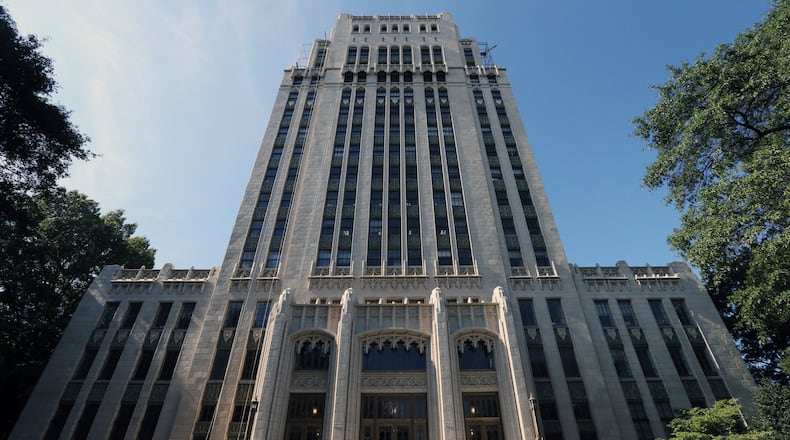When Atlanta elects its next mayor for 2021, the city’s new leader will be tasked with several pressing issues.
The 61st mayor must address rising violent crime, housing issues, the ongoing coronavirus pandemic, and the Buckhead community’s fight to become its own city. All 15 City Council seats are also up for election this year, so the mayor will have to steward a city with a new legislative body as well.
Additionally, this is Georgia’s first major election since the passing of the state’s expansive voting law changes.
“It’ll be interesting to see how early voting will be impacted and if there’s any confusion about how to vote,” said political consultant and strategist Fred Hicks.
The general election will be Tuesday, Nov. 2, including elections in the city of Atlanta for mayor and City Council president. Early voting began Tuesday, Oct. 12, and ends Oct. 29.
Atlanta’s five leading candidates for mayor include city councilmembers Antonio Brown and Andre Dickens, attorney Sharon Gay, Council President Felicia Moore, and former Mayor Kasim Reed.
The campaigns for three of the aforementioned candidates will create council seat vacancies. Likewise, councilwomen Carla Smith and Jennifer Ide are not seeking reelection. Councilwoman Natalyn Archibong is not seeking reelection because she’s running for the council president seat.
“I don’t think people realize the amount of change that’s coming to council. You’re going to have six out of 15 councilmembers that are going to be replaced, assuming that all the incumbents win. That’s pretty significant,” Hicks said.
At the same time, a September poll of mayoral candidates commissioned by The Atlanta Journal-Constitution found that nearly 41% of likely voters are still undecided on who should replace Mayor Keisha Lance Bottoms.
However, most voters agree that crime is the most pressing issue, as 70% of the respondents agreed the city is on the “wrong track” in dealing with the rise in homicides and assaults.
About 60% said the city was on the wrong track with traffic congestion and 56% were critical of the affordable housing approach. About 58% of voters also oppose Buckhead secession, which is expected to significantly cut Atlanta’s tax revenue if Buckhead residents vote for cityhood in a November 2022 referendum.
Meanwhile, it remains to be seen what will happen with absentee voting this time versus the 2017 municipal elections due to the passage of Senate Bill 202. The great, detailed explanation about the changes in Georgia’s voting laws is available on AJC.com.
Under Georgia’s new voting law, voters will need to submit a driver’s license number, state ID number or other documentation when both requesting and returning absentee ballots. The last opportunity to return an absentee ballot application is 11 days before election day.
Georgia’s voting law permits drop boxes if they’re located inside early voting locations, available only during in-person voting hours, and shut down when early voting ends the Friday before an election. Early voting hours are set at 9 a.m. to 5 p.m. Election officials can choose longer hours, from 7 a.m. to 7 p.m.
The new law bans distributing food and drinks to voters within 150 feet of the outer edge of a polling place or within 25 feet of any voter standing in line. Poll workers can still install self-service water receptacles for voters waiting in line. Handing out water is a misdemeanor, amounting up to a year in jail and a $1,000 fine.
Likewise, SB 202 restricts voting buses to emergencies declared by the governor, such as polling places that were affected by disasters such as storms and power outages.
The runoff election day for the races will occur Tuesday, Nov. 30. A runoff will occur if none of the candidates get more than 50% of the vote.
Atlanta Journal-Constitution reporter Mark Niesse contributed to this article.
About the Author
Keep Reading
The Latest
Featured



